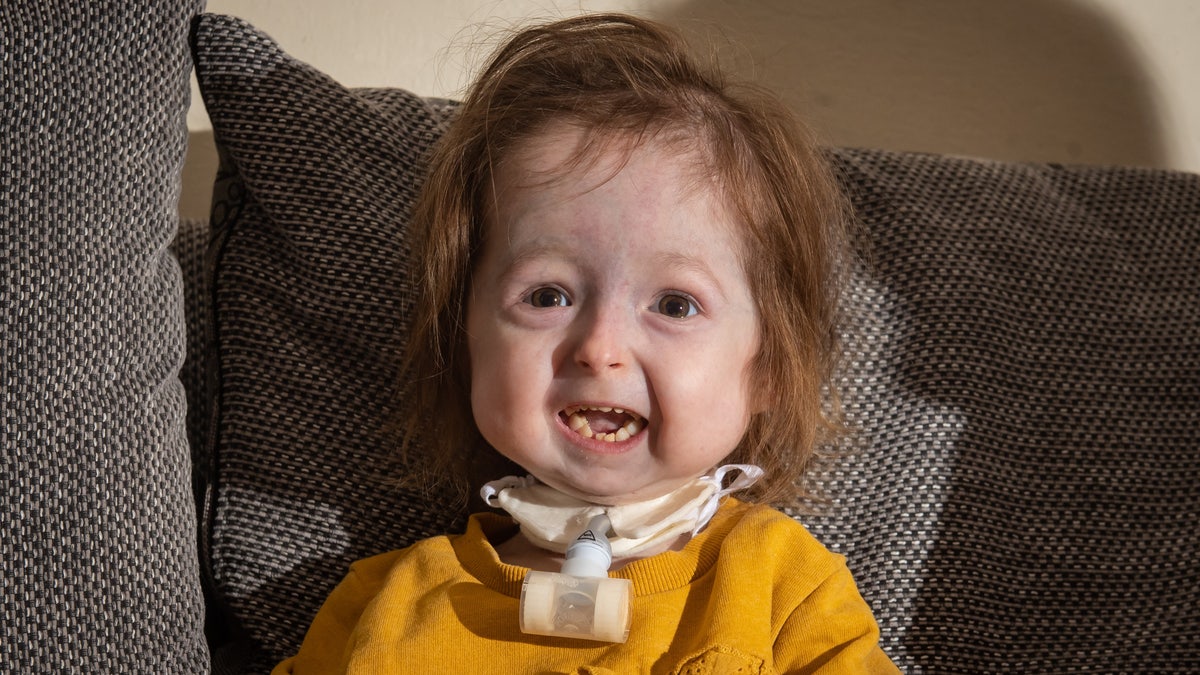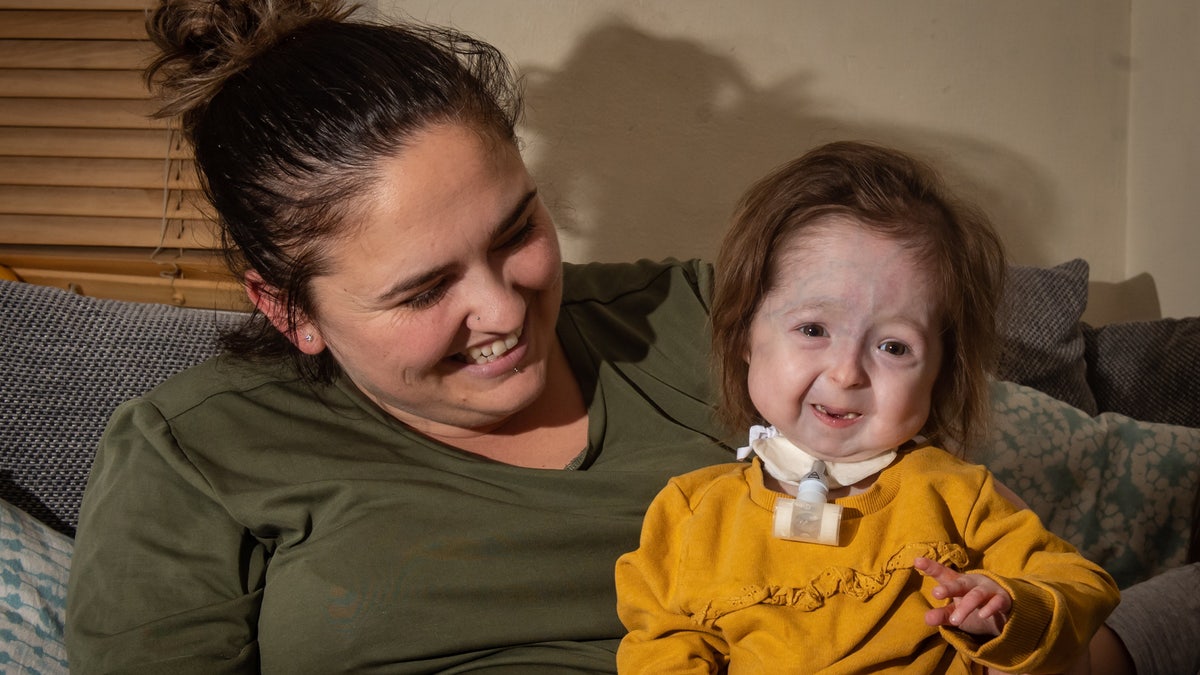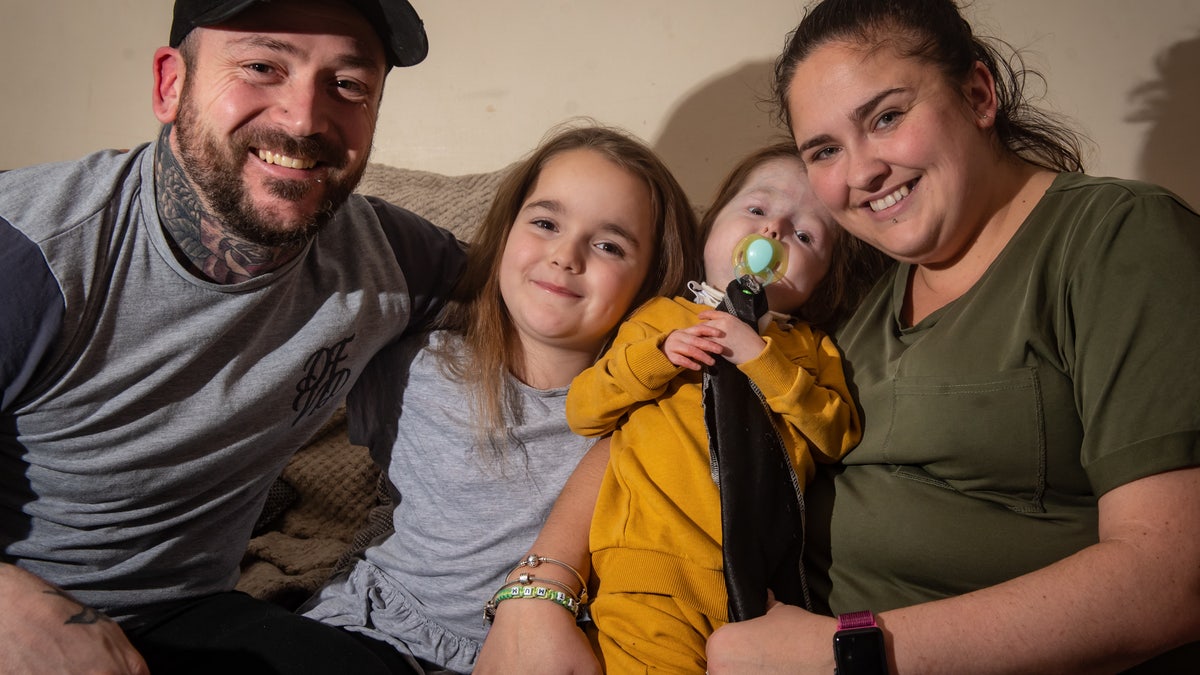Fox News Flash top headlines for Dec. 16
Fox News Flash top headlines for Dec. 16 are here. Check out what's clicking on Foxnews.com
A 2-year-old girl in the United Kingdom has an extremely rare genetic disorder that’s said to be a form of the so-called “Benjamin Button disease.”
Isla Kilpatrick-Screaton has a unique mutation of mandibuloacral dysplasia, a genetic disorder that's characterized by "underdevelopment (hypoplasia) of the lower jaw (mandible) and the collarbone (clavicle), bone loss at the ends of the fingers and toes (acro-osteolysis), skin degeneration (cutaneous atrophy), and partial lipodystrophy, a condition marked by selective loss of body fat (adipose tissue) from various areas of the body," as per the National Organization for Rare Disorders (NORD). The disease “may be classified as a form of lipodystrophy or progeria because of its overlapping symptoms,” which includes the appearance of premature aging, according to the site.
Progeria, a similar disorder, is often referred to as the “Benjamin Button disease” that causes those affected by it to look prematurely aged.
GIRL, 7, WHO LEARNED CPR FROM YOUTUBE VIDEOS SAVES MOM WITH EMERGENCY PROCEDURE: 'SHE’S MY HERO'
Isla, who has only recently begun to crawl and weighs just 15 pounds, was born in February 2017. She arrived weighing 5 pounds and 10 ounces, her mother, Stacey, 33, told SWNS, a British news agency. She was not diagnosed with mandibuloacral dysplasia until October of that same year.
“We nearly lost her — she was fighting against everything they were trying to do,” said Stacey. "She was incubated for the first five days of her life and put in an induced coma, so we were unable to hold her.”

Isla Kilpatrick-Screaton from Leicester, UK, who was born with an allegedly never-before recorded form of mandibuloacral dysplasia. (SWNS)
Just six days after bringing Isla home, Stacey said she and her husband Kyle, 36, were forced to call emergency officials when Isla began to choke.
“We had to ring an ambulance after six days because she started choking, spluttering and turning blue when we were bottle-feeding her. One of us would do CPR while the other held the phone. It was awful for our daughter Paige to see,” she said of the couple’s other child, who is 7.
“In the hospital, they managed to clear her airways and she spent another two weeks there,” she continued.
Months later, the family finally received their daughter’s diagnosis.

Isla with her mom Stacey. (SWNS)
“When we had the diagnosis the genetic consultant said Isla is the only one in the world to have this particular misspelling of the gene, which causes the mutation,” Stacey said. “There only appears to be seven examples ever in medical literature of mandibuloacral dysplasia — but none of them is this particular mutation."
The condition has caused various health-related problems for the young girl, who can only say a few words and primarily uses Makaton sign language to communicate with her family. Isla suffers from a heart condition and has difficulty breathing due to narrow airways. Isla now has a tube, known as a tracheotomy, in her throat to assist with her breathing. She cannot eat on her own, so she also has a gastrostomy in her stomach where she is fed high-calorie milk and some solid food, as per SWNS.
“Her symptoms are narrow airways; pale, thin skin and a small jaw which means her tongue is far back in her throat, which can stop her breathing,” her mother said. “She sees about 12 consultants, has from one to six appointments a week and has a whole cabinet of medical records."

Isla with her parents Stacey and Kyle and sister Paige. (SWNS)
“She can’t cry so when she sleeps she’s attached to a heart monitor and an alarm goes off when she wakes up. This means we can sleep at night.”
Despite everything, Stacey, who now works as Isla's full-time aide, said her youngest daughter “is very expressive and communicative” and is a “happy little girl.” But, she noted, "it takes a lot out of the family.”
CLICK HERE TO GET THE FOX NEWS APP
"We're told her condition isn't life-limiting but we just don't know for sure as her case is so unique,” said Kyle of his “extremely small and frail” daughter.
"We have been left in the dark somewhat. We have been told its mandibuloacral dysplasia of which there are usually two types A or B. But Isla doesn't fall into either of these categories so we don't entirely know where we stand," he said. "There's not really any support available so we just take it day by day.”









































